Lifetime Achievement Award
About the Award
The National Space Club Florida Committee each year traditionally recognizes one to three people for life-long achievement and contributions to the U.S. space program while living in Florida. Past honorees represent a wide range of managers, engineers and other specialists who were vital to the success of our efforts in space.
Nomination and Selection Guidelines
The nominee must have made significant contributions to the space industry through technical achievement, education, or the management of aerospace related activities as a government, military, commercial or government contractor employee.
The nominee is either currently employed in continuous service for a substantial period, or has been retired from an active working career for more than a year since the most recently conferred Lifetime Achievement Award.
The nominee is either currently, or had previously been, an active public advocate for the space program.
The nominee may not have previously received either a Debus Award or Kolcum Award from the NSCFL.
Florida residency is not required to receive the award, but the achievements being recognized must have been made while employed in Florida.
Nominations for this award are accepted from mid-April and are due June 30th (dates approximate). The award is presented each year during the Celebrate Space Awards Banquet. Watch the homepage news feed for updates.
Current Lifetime Achievement Award Recipients
2022
Raymond Polniak
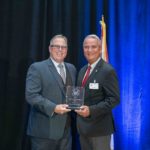
Ray Polniak started at Kennedy Space Center in 1984, assigned to support Shuttle’s External Tank and Solid Rocket Booster programs (ET/SRB). He worked with the Director of the Special Projects in response to an Aerospace Safety Advisory Panel Committee mandate, earning a special commendation from the Committee’s Chair. Following that, Ray became the Ops Manager at Pads 39A & 39B for ET/SRB, integrating the Mobile Launcher and Hypergolic crews with the ET/SRB launch pad crew. The team received an award and Ray returned to ET/SRB as Quality Manager for all processing locations. As Shuttle closed, Ray assumed Quality Management of the IBEW, COMFAC, and Quality Engineering personnel. He was also USA Quality Manager in support of the first paperless launch vehicle processing (ARES-1X) at Pad-39B.
In 2013, Ray began providing Quality Management oversight to the Center for Advancement of Science in Space (CASIS), continuing his support for the past 9 years. Their most significant ISS accomplishment to date is with Merck Laboratories in the development of a drug delivery system that was given to former President Jimmy Carter for his brain cancer. Ray graduated Magna Cum Laude and is Certified in both Aviation and Aerospace Safety and Management from Embry Riddle Aeronautical University (ERAU). He is a Certified Manager through The National Management Association, James Madison University, and the Institute for Certified Professional Managers (ICPM).
During the past 35 years at KSC, Ray Polniak has supported 121 Shuttle launches, and been a Manager in the VAB, the RPSF, the AF Hangar, Pads 39A & 39B, the OPF, and the SLF. He has worked for Grumman, Morton Thiokol, Thiokol, Lockheed Martin, United Space Alliance, CSS Dynamac, CASIS, and the ISS National Laboratory. Ray has also served as President and Vice President of both the Florida Space Coast Council (FSCC), The United Space Alliance Leadership Association (USALA), and National Management Association (NMA)
David E. McFarland

With a legendary career spanning 45 years, it is impossible to adequately describe David McFarland’s vast contributions to America’s space launch capabilities, from a propulsion engineer on workhorse rockets to crafting new launch sites to his role today as the United Launch Alliance (ULA) chief engineer of Launch Operations.
Dave was born in Oak Park, Illinois and lived in various cities throughout the Midwest. He received his degree in Aeronautical Engineering from Arizona State University and started with McDonnell Douglas fresh out of college in 1977 as a propulsion test engineer supporting the Delta 132 launch of a weather satellite. In 1996, he became the lead engineer for ground systems for the Delta III rocket at Cape Canaveral’s SLC-17B. In 1998 he became the senior manager and chief engineer to design and build all ground systems needed for the Delta IV rocket at Cape Canaveral’s SLC-37B and Vandenberg’s SLC-6, then to grow and transition the engineering team to conduct launch operations. Since 2008, Dave has served as the chief engineer of Launch Operations.
Dave raised his family with his wife JoAnn (passed in 2013) in Merritt Island. They have two daughters, Heather McFarland and Holly Karnes, who currently work in communications for the aerospace industry.
Today, Dave is one of the most experienced teammates at ULA. His favorite lesson to pass on: “we’re only as good as our next launch
2021
Mike Leinbach
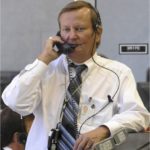
Mike Leinbach was the final Shuttle Launch Director at NASA’s John F. Kennedy Space Center. He was responsible for overall Shuttle launch countdown policy, planning, and execution activities for the last eleven years of the program.
Mike joined NASA in 1984 as a structural engineer and became Deputy Director of the International Space Station program office at KSC in 1998. He became the Shuttle Launch Director in 2000.
Mike led KSC’s forces in the initial Columbia recovery effort in February 2003. Shortly thereafter, he led the Columbia Reconstruction Team and was the driving force behind the Columbia Preservation Team and the initiative to lend debris to industry and academia to develop better and safer spacecraft of the future. He is the author of “Bringing Columbia Home” that chronicles the mammoth effort of the 25,000 Americans that helped find Columbia’s crew and debris.
He has received special recognition throughout his career including the Presidential Rank Award. He retired from NASA in 2011. Currently, Mike leads the Launch Director Tour at KSC’s visitor complex and serves on the Astronaut Memorial Foundation Board of Directors.
Mike attended the University of Virginia, earning both the Bachelor of Architecture and Master of Engineering degrees. He and his wife of 42 years Charlotte reside in Scottsmoor, Florida.
Joseph Mayer
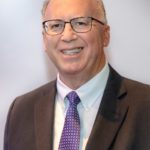
Joe Mayer is the Director of Government Relations for Lockheed Martin in FL. Mayer has 43 years’ experience in government and community relations, national security affairs and U.S. space exploration policy in Washington, D.C., Texas and Florida. Joe worked previously for The Boeing Company, Rockwell International, the Senate Intelligence Committee and U.S. Senator Jake Garn (R-UT). He is Chairman of Citizens for Space Exploration, a national grassroots organization advocating US leadership in space exploration. He is a NASA Space Flight Awareness award recipient, an Associate Fellow of the American Institute of Aeronautics and Astronautics, and a member of Congressman Bill Posey’s Space Advisory Committee. Joe was the 2019-2020 Board Chair of the Economic Development Commission of Florida’s Space Coast and is a Board member of the Astronaut Scholarship Foundation, the Astronauts Memorial Foundation, VISIT Florida, FloridaMakes and the Florida Defense Contractors Association.
In 2019, the National Space Club – Florida Chapter named Joe to its “Hall of Fame for Space Flight Advocacy and Education”. On February 26, 2013, the Mayor and City Council of Houston, Texas issued a Proclamation for “Joe Mayer Day” for his service to the community and promotion of U.S. leadership in human space flight.
Dr. Jane Hodges
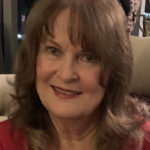
Dr. Jane Hodges is known for her accomplishments in aerospace education. It was a chance set of circumstances that introduced Jane to the world of aerospace in which she had such a profound educational impact when, as a young teacher in Hawaii, President Nixon attended her church and invited her to come greet the Apollo 13 astronauts upon their successful return. That inspired Jane to learn more about aerospace, and she enrolled in an aerospace university class and pursued her pilot’s license. Wanting to share her newly learned discoveries, she set up her classroom filled with materials she developed to teach her young first-graders about the principles of space and flight. Jane’s constant thirst for knowledge wove a unique 50-year career, notable for its diversity and breadth. She earned a total of seven degrees (including two PhDs and a law degree); wrote materials on air and space science; created and taught courses on aerospace education at three different universities and in West Africa; directed aerospace education for the Civil Air Patrol; served in NASA’s Public Affairs Directorate at the Kennedy Space Center; traveled to over 80 countries, many as a presenter/speaker at international conferences; and established Edisto Press, her own international aerospace consultation and publication business.
Past Lifetime Achievement Award Recipients
Larry Clark
Butch Gardner
Roland Norris
advisory role for additional launches from Vandenberg Air Force Base. In the words of Lt. General Samuel A. Greaves, the former Commander of the Air Force Space and Missile Systems Center, Tom had a “truly superb career and countless significant contributions to the mission and to our national defense”.
2018 Charles S. “Steve” Griffen and Dr. Dick Jolley
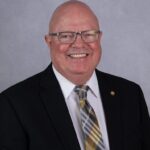 Steve Griffen is responsible for Perspecta’s NASA subcontracts including Expendable Launch Vehicle Integrated Support 3 (ELVIS 3), Mission Assurance Support Services (MASS), Systems Engineering and Analysis Services (SEAS), and Space Communications Network Systems (SCNS). Previously Steve was the Vencore executive responsible for the NASA KSC Engineering Services Contract.
Steve Griffen is responsible for Perspecta’s NASA subcontracts including Expendable Launch Vehicle Integrated Support 3 (ELVIS 3), Mission Assurance Support Services (MASS), Systems Engineering and Analysis Services (SEAS), and Space Communications Network Systems (SCNS). Previously Steve was the Vencore executive responsible for the NASA KSC Engineering Services Contract.
Prior to joining Vencore, Steve served as President of Space Coast Launch Services, and then as General Manager of Computer Sciences Raytheon. Under Steve’s leadership, both companies achieved 100% mission success in 83 consecutive national security, civil, and commercial launches. Most recently, Steve served as Senior Director of Business Development for Chicago Bridge and Iron Federal Services responsible to build market position, create long- term value, and contribute to the development and refinement of the company’s business vision and strategy.
In addition to a Bachelor of Science degree from West Point, Steve also holds a Master of Science degree from the University of Central Florida, an Executive Leadership Certificate from Cornell University, and is a certified Project Management Professional (PMP). He serves as a Board Member for the National Space Club Florida Committee, United Way of Brevard County, and the American Space Museum and Walk of Fame. In 2004 Steve was named as an Aerospace Laureate by Aviation Week and Space Technology Magazine.
Dr. Dick Jolley
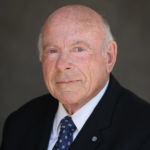
Dr. Dick Jolley came to Kennedy Space Center in 1989 as the Deputy and then Manager of the Base Operations Contract. That assignment was followed by President and CEO of BRPH Architects & Engineers and then as Program Manager of Navy Base and Anderson AFB, Guam operations joint base contract. He returned to KSC in 2010 as the Engineering Manager for the Engineering Services Contract and Program Manager for Stinger Ghaffarian Technologies (SGT).
Dick was awarded a bachelor and master’s degree in civil/structural engineering from the University of Utah and began a 24-year career in the US Air Force Systems Command.
He obtained a PhD in Engineering Mechanics, Math and Computer Science from Brigham Young University and subsequently held faculty positions at the Air Force Institute of Technology and the Air Force Academy. He served at the Air Force Weapons Laboratory as Director of Structural Engineering, Defense Nuclear Agency as Chief of the Analytical Group followed by three remote assignments to the Western Pacific, Southeast Asia, and Oeno Island as Base Commander before retiring.
2017 Ted Hartselle, Mark Dowhan and John Presnell
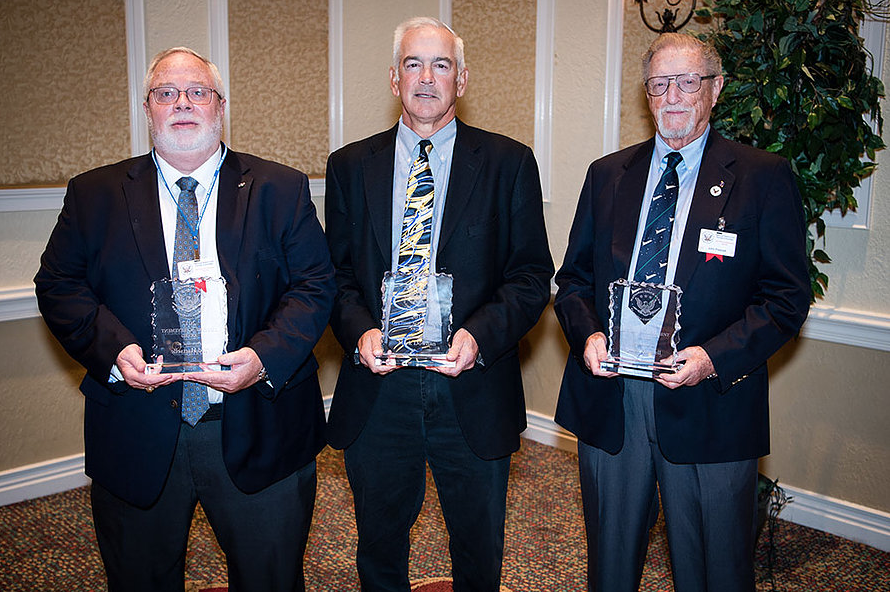
Hartselle is a Florida native who worked on the Space Shuttle program, focusing his expertise on the liquid oxygen system on the external tank and at pad B. Hired as Columbia was rolling out to the pad for STS-1, he retired from United Space Alliance after the STS-135 mission. Now an aerospace professor at Eastern Florida State College, he also is a Rockledge city councilman.
Dowhan is a 22-year-veteran of the U.S. space program. While in the Air Force he commanded the Atlas 2 and Delta 2 launch squadrons at the Cape. With Boeing, he was a mission integrator and site director for pad 17. With United Launch Alliance, he directed both west and east coast operations, retiring in 2017. Originally from Burlington, Vt., he now resides in Cocoa Beach.
Presnell’s career spans 55 years of aviation and space history, from the NACA in 1956, to the final Shuttle mission in 2011 as Chief Logistics Engineer for United Space Alliance. In between he worked on supersonic research, Apollo spacecraft, early Orbiter ground testing including structural and propulsion testing, and as JSC Resident Manager at KSC. He resides on Merritt Island.
2016 Charles Abner, Marshall Heard, Gary Ray and Michael Spence.
Abner’s space experience began with Apollo in 1967. Taking a 20-plus-year break to fly for the Air Force, he came to KSC in 1974 to work on the Shuttle team, eventually serving as project engineer, assistant launch director and chief engineer. Today he is chief engineer for the KSC Engineering Services Contract.
Heard is a half-century-plus veteran working in the aerospace industry, spending 35 of those with Boeing. He now shares his engineering, marketing/business and program management experience with a variety of clients.
Ray began a long NASA engineering career at KSC in 1967, serving mostly in the Design Engineering Directorate working with Shuttle ground infrastructure. His wide range of accomplishments include building a Shuttle contingency landing site on Easter Island.
Spence’s 26 years as an officer in the Air Force included posts as commander of the 6555th Aerospace Test Group and the 45th Operations Group. This was followed by 16 years with the Aerospace Corporation here at the Cape, including serving as Principal Director. Today he is a consultant on Range operations.
2015 Bob Lang, Conrad Nagel and Norm Perry
Lang began his career at KSC in 1967 and made enormous contributions to the success of Apollo, Skylab and Shuttle at various levels of management and in multiple disciplines. He retired from NASA in 1996 to join United Space Alliance as VP and Shuttle Chief Engineer, retiring a final time in 2011.
Nagel joined NASA in 1965 working on the Saturn launch vehicles and had primary responsibility for activating the VAB for Shuttle. He served as Atlantis flow director for 20 of its missions and retired from NASA in 2005. He remains active as a respected consultant for Space Florida, Boeing and others.
Perry joined the Von Braun rocket team in Huntsville in 1956, arriving at KSC in 1962, where he established the first quality control system. He retired from NASA in 1989 as Industry Assistance Officer, and has since remained active in the local space community sharing the excitement of spaceflight.
2014 Patrick Blucker, Chris Fairey and Brice Lytle
After a long and distinguished career as an Air Force contractor, Blucker retired in 2012 as Director of Plans and Programs for the 45th Space Wing at Patrick AFB. Between 1969 and 2002, Fairey worked with NASA and had roles that included systems engineer and test director and continues to support the space program as a volunteer and consultant. As an expert in designing and operating launch support facilities, Lytle began his contractor aerospace career in 1961 working on the Saturn 1B and has been involved in every U.S. space program launching from KSC, Cape Canaveral AFS and Vandenberg AFB.
2013 Conrad Perez, Stephen Francois and Wayne Owens
Perez began working in 1958 on the Titan missile program, continued on to Gemini, Apollo and Shuttle and was widely regarded as “the” hypergolic systems expert at KSC. Francois spent most of his NASA career working expendable launch vehicles and served as Program Manager of the Launch Services Program at KSC. With over 50 years dedicated to NASA, Boeing and Precision engineering organizations, Owens was involved in the design, operations and management of aerospace systems, facilities and equipment from Apollo to the present.
2012 Art Edwards, Addison Bain, Ph.D. and Terry Greenfield
Edwards began his KSC career in April 1967 as a NASA Engineering Co-op Student and retired from United Space Alliance in July 2012. Bain’s exemplary space career spans almost fifty years working for NASA, Air Force and numerous space industry contractors and is considered an expert on the use of hydrogen. Greenfield’s significant contributions to the U.S. missiles and rockets began in 1955 and continued with both civil service and contractor involvement with launch vehicles, spacecraft and ground systems before retiring in 2011.
2011 Larry Ellis, Norman Neiman and Chester Wasileski
Ellis has 47 years of experience as a NASA and contractor engineer in the space industry working Apollo, ELV and Shuttle programs. Neiman has a half-century-plus career in the space industry as a mechanical engineer, manager and entrepreneur. Wasileski’s thirty-year government space career influenced the Redstone, Mercury, Jupiter, Saturn and Shuttle launch vehicle programs.
2010 John T. Conway, Timothy H. Hanrahan and Warren Lackie
Conway spent 34 years with NASA, retiring in 1996 as director of payload processing at the Kennedy Space Center. Hanrahan’s contractor career spanned nearly 40 years in support of system design, acquisition and launch processing operations before retiring in 1996. Lackie was with NASA for 32 years working integration of ground and flight systems during Apollo, and later joined ASRC Aerospace.
2009 Jim Johnson, Gerald Oppliger and Guenter Wendt
Johnson is a 40-year NASA veteran who began work in 1955 and retired as deputy manager of the Russian Integration Office. Oppliger began as a project engineer with Sperry Utah in 1959 and is notable for his long service as President of Lockheed Space Operations Company at KSC from 1991-1997. Wendt served on every spacecraft close-out crew from the launch of the monkey “Ham” until his retirement in 1989, and is legendarily known by the nickname the Mercury astronauts gave him as “Pad Fuhrer.”
2008 William Heink, Dr. Al Koller and Harold Zweigbaum
Heink spent 38 years as a contractor working on programs ranging from Apollo to the Space Shuttle. Koller is a veteran KSC leader who was active later in his career on important space-related education initiatives. Zweigbaum, among other achievements, was general manager of the commercial satellite processing firm Astrotech during its early days,
2007 Norris Gray, Jay Honeycutt and Charlie Murphy
Gray, the Cape’s first fire chief, was actively involved in the first launch from Cape Canaveral in 1950 and remained active in the space program for almost 60 years. Honeycutt was a key manager in Houston during Apollo and the sixth director of the Kennedy Space Center. Murphy was a 48-year space veteran who worked on the Navaho, Titan, Atlas and Minuteman missiles – and later on Apollo and the Space Shuttle.
2006 Sam Beddingfield, Francis Shill and J. Tal Webb
Beddingfield retired from NASA in 1985 after a 26-year career with the nation’s space agency. Shill was an experienced government contractor who worked on the Eastern Range for more than 40 years. Webb was a veteran aerospace manager who worked on every U.S. manned space program from Project Mercury to the Space Shuttle.
2005 James Harrington, Lou Ullian and Al Bruckner
Harrington joined NASA in 1966 and retired nearly three decades later as Shuttle Launch Director. Ullian was considered the iron-fisted father of range safety on the Eastern Test Range. Bruckner was the director of the Eastern Test Range for Alan Shepard’s Mercury flight in 1961.
2004 Tom Brown, John Mansur and Charlie Mars
Brown had a hand in the design and operation of such historic boosters as the Redstone, Saturn 1 and Atlas-Centaur. Mansur worked for General Dynamics and managed more than 80 Atlas launches, including all Ranger and Mariner missions. Mars was with NASA for 34 years working every U.S. manned space program from Mercury to the International Space Station.
2003 John Neilon, Orion Reed and James Schofield
Neilon worked 39 years for the federal government working on cargo and expendable launch vehicles. Reed spent 40 years with General Dynamics working on Atlas and Titan rockets. Schofield worked for 42 years with McDonnell Douglas an Boeing, mostly on payload operations.
2002 Silas “Sy” Baker, John Tribe and Tom Utsman
Baker was a 38-year veteran of Atlas launch operations at Cape Canaveral. John Tribe was chief engineer of launch support services working on the Space Shuttle program at KSC. Utsman was a 34-year veteran NASA manager, working here at KSC and in Washington.
2001 Russell Barnes, Horace Lamberth and Maj. Gen. Jimmey Morrell
Barnes was associated with Pan Am as a senior executive working on the Eastern Range for 47 years. Lamberth was with NASA and Lockheed working in shuttle engineering. Morrell was with the Air Force working on military space programs and was the first commander of the 45th Space Wing.
2000 Andy Pickett and George Skurla
Picket was a senior NASA manager working in launch operations, while Skurla was with Grumman managing the effort to build the Apollo Lunar Module. He later became Grumman’s CEO.
1999 Norm Carlson and Cal Fowler
Carlson was a launch operations manager for NASA’s manned programs, while Fowler was with General Dynamics and General Electric, working in management on vehicles ranging from Atlas to the Shuttle.
1998 Tom O’Malley and Pat Yount
O’Malley was with General Dynamics and Rockwell, serving as a senior executive from Project Mercury through to the Space Shuttle. Yount was with Chrysler, managing launch operations for the Redstone, Saturn 1 and Saturn 1B rockets.
1997 George English, Merritt Preston and Peter Hoffman-Heyden
English was with NASA and served as senior executive to six KSC Center Directors. Preston, also with NASA, ran the Manned Spaceflight Program at KSC. Hoffman-Heyden was with RCA and is considered a Radar and Range Systems pioneer.
1996 No Award Was Given
1995 Paul Donnelly and Buck Buchanan
Donnelly was associated with NASA and USBI serving as a launch director. Buchanan was associated with NASA and is best known for managing the construction of Launch Complex 39.
1994 Al Martin and Harry Kolcum
Martin was associated with Rockwell working on the second stage of the Saturn 5 rocket and was later Shuttle Chief Engineer. Kolcum was associated with Aviation Week and Space Technology magazine and was a respected aerospace writer.
1993 Ike Rigell
Rigell was associated with NASA and USBI and was best known for being a chief engineer working on Apollo-Saturn.
1992 Bob Gray and Walt Kapryan
Both Gray and Kapryan were associated with NASA. Gray was a long-time director of Expendable Launch Vehicle operations. Kapryan was an Apollo launch director.


 Home
Home